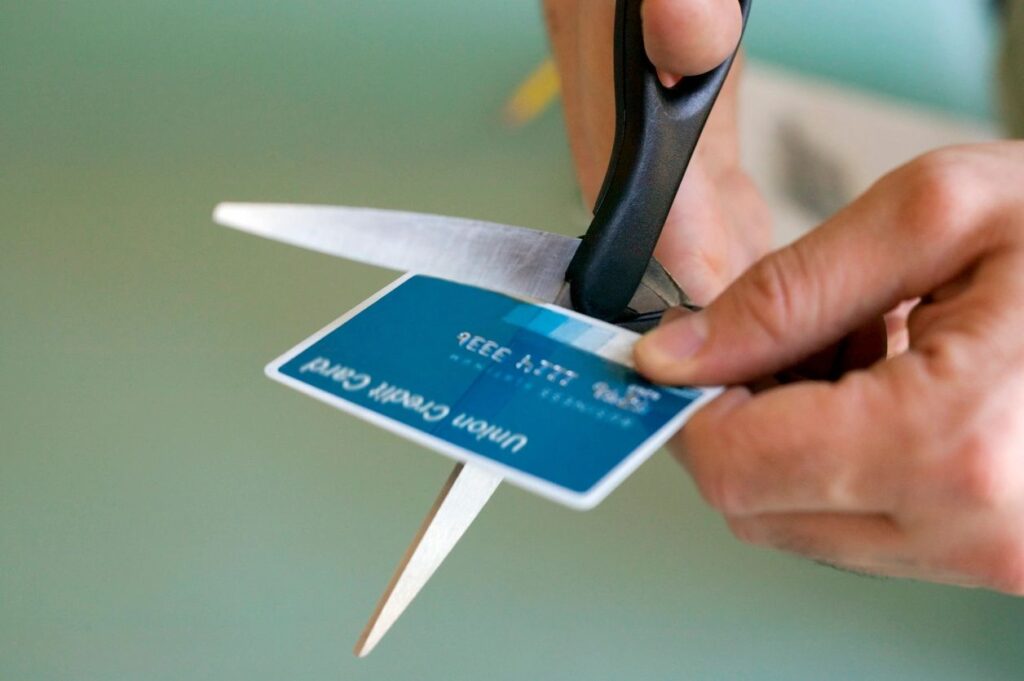10 Habits that Will Help You Reach Financial Freedom
DISCLOSURE: THIS POST MAY CONTAIN AFFILIATE LINKS, MEANING I GET A COMMISSION IF YOU DECIDE TO MAKE A PURCHASE THROUGH MY LINKS, AT NO COST TO YOU!
Many people have set themselves the aim of achieving financial independence. A secure financial future usually involves having enough savings, investments, and cash on hand to support the lifestyle you desire for yourself and your family—as well as a growing nest egg that will allow you to retire or pursue the career of your choice without being constrained by the need to earn a certain amount each year.
Unfortunately, far too many people do not succeed in their endeavors. They are overwhelmed by mounting debt, financial emergencies, excessive spending, and a variety of other challenges that prevent them from achieving their objectives.
After that, there are unforeseen catastrophes, such as a storm or an earthquake—or even a pandemic—that throw plans into disarray and disclose gaps in their safety nets that were before invisible.
Nearly everyone will have difficulties at some point, but following these 10 habits will help you stay on the right track.
Start to Understand Your Current Situation
The first step on the road to financial independence is to understand where you are presently at. This includes having a clear understanding of how much debt you have, how much money you have saved, how much money you spend each month, how much money you earn, and so on.
To put it another way, you must be familiar with your personal financial statement and have a somewhat accurate understanding of your income, spending, assets, and obligations.
As soon as you have these figures, you may continue on to step 2 of your financial independence path, which is the writing down of your objectives.
Make a Goal List

By writing your objectives down, they become real, solid and substantial rather than just ideas or fantasies that are whizzing about in your head.
Positive words of encouragement should be included in your goal-setting process to help you stay motivated and enthused about attaining your objectives. Your goals should be kept in a visible location where you can view them at all times.
Write your aim in terms of what you want rather than what you don’t want, and make sure it is specific. For example, “I want to shed 80 pounds by January,” rather than “I don’t want to be overweight by January,” would be more appropriate.
You may either get a diary and put your goals in it, or you can make a vision board and pin your goals to it so that you are reminded on a regular basis to continue working toward your objectives.
Make a Budget and Stick to It
The preparation of a budget must be the essential step in any successful financial strategy. Instead of being used as a guideline to achieve financial independence, the budget should be utilized as a wish list rather than a guideline to achieve financial independence.
The fact that you’re seeing your budget as a means to spend the money that you have to spend it rather than a manner that you want to spend it will ensure that you keep to it smoothly and without any hitches.
According to a Pew Research Center poll of a random sample of Americans, 55 percent of them spend all or more of their monthly income, and 33 percent have little or no reserves to deal with a financial emergency in the future.

I often wonder if they would have had enough funds if they had followed their budget to the letter. Perhaps they would have been able to invest and achieve financial independence.
That is why you must have a budget that you can work with in order to reach financial independence.
Automatic Savings
First and foremost, pay yourself. Enroll in your employer’s retirement plan and take advantage of any matching contribution benefits that may be available to you.
It’s also a good idea to set up an automated withdrawal for an emergency fund, which may be used to cover unforeseen bills, as well as an automatic contribution to a brokerage account or anything of the same nature.
Ideally, the money should be taken out of your account the same day you receive your paycheck so that it never even comes into contact with your hands, so avoiding temptation completely.
Keep in mind, however, that the quantity of money that should be saved is very debatable. In some instances, the practicality of such a fund may be called into doubt.
Keep an Eye on Your Credit
When you are purchasing a new automobile or refinancing a home, the interest rate you are given is determined by your credit score. It also has an influence on items that appear to be unconnected, such as vehicle insurance and life insurance prices.
This is because someone who has risky financial habits is also prone to be reckless in other parts of their lives, such as driving and drinking, according to the logic.
This is why it’s critical to obtain a copy of your credit report on a regular basis to ensure that there are no erroneous black marks on your record that might harm your reputation.
Additionally, it may be worth your while to investigate one of the top credit monitoring services in order to better safeguard your information.
Get Rid of Your Debts
It is critical to pay off bad debts as soon as possible since, as previously said, doing so will prevent you from accruing further interest and from living above your financial means.
Reducing your outstanding bills on items such as credit cards can also help you boost your total credit score; the amount due on your accounts for a staggering 30% of your FICO score.

Making debt payments will free up more cash flow, allowing you to save and invest more money, which is something that everyone should strive for in their financial lives.
Reduce Unnecessary Expenditures
Cutting one’s unnecessary costs and discretionary purchases can be challenging, despite the fact that it appears to be the most apparent solution.
Many variables, including the glamorous social media world, contemporary luxuries, and high-end accessories marketed as necessities, influence individuals to make impulse purchases. Here are a few of the most significant, among many more.
The fact that financial security is not determined by how much money you earn is not a secret. It all boils down to how much money you are able to have on hand.
Identify Your Savings Goals and Implement Them
Once you have completed all of the stages outlined above, you will have already created a budget that you can readily connect to, and that is geared toward assisting you in achieving financial independence.
And, sure, you will save money as a result of this!
Consequently, decide what the finest and most significant thing to accomplish with your funds is at that particular time. In the event that you have any debt, now is the time to pay it off so that the interest rate does not continue to accumulate.
You may also accrue money in your savings account and use it to build up an emergency fund, or you can invest the money in a mutual fund or other investment plans of your choosing.
Keep Moving Up in Your Career
The easiest approach to achieving financial independence is to increase your income while keeping your expenditure levels stable or under control. This necessitates your continual effort to advance your professional or entrepreneurial endeavors.

Consider the possibility that you may advance more quickly in your profession and, consequently, in your salary as a result of your learning new and useful skills and boosting your worth to your company.
If you are self-employed, this entails devising development plans to propel your company to the next level of success.
So, if you have been allowing your professional advancement to be determined by chance, it is definitely a good idea to consider how you might speed up the process today. That, in turn, will help you earn more money and go closer to financial independence over the long term.
Create Extra Income Streams
A 9 to 5 work may not be adequate for the vast majority of people who are serious about achieving financial independence. To put it another way, you might have to search outside of your employment for ways to supplement your income.
As a matter of fact, some financial gurus advise consumers to develop as many as five different sources of income. In other words, if you have a 9 to 5 work, you should be pleased since you have one source of money. You must now come up with four additional ideas!
There are two possible sources of additional income. To earn money, you can use one of two approaches: active income or passive income.
The other method of generating more revenue is to do it passively, which means that you just have to complete the job once, and the money keeps arriving in a fully automatic manner.
Conclusion
It will take time and effort to adopt the aforementioned 10 habits. To achieve financial independence and success, you need to make these habits a part of your daily routine.
It may be difficult to get into these habits at first, especially if you’re trying to cut back on stuff you don’t need. I mean, you didn’t have to have such things previously.
However, if you stick to these 10 habits, you’ll be on your way to being a successful person.
Thanks for reading this article and if you like this kind of content don’t forget to sign up for our weekly posts. You are sure to get some value!
Digee Dads!
DISCLOSURE: THIS POST MAY CONTAIN AFFILIATE LINKS, MEANING
![]()







